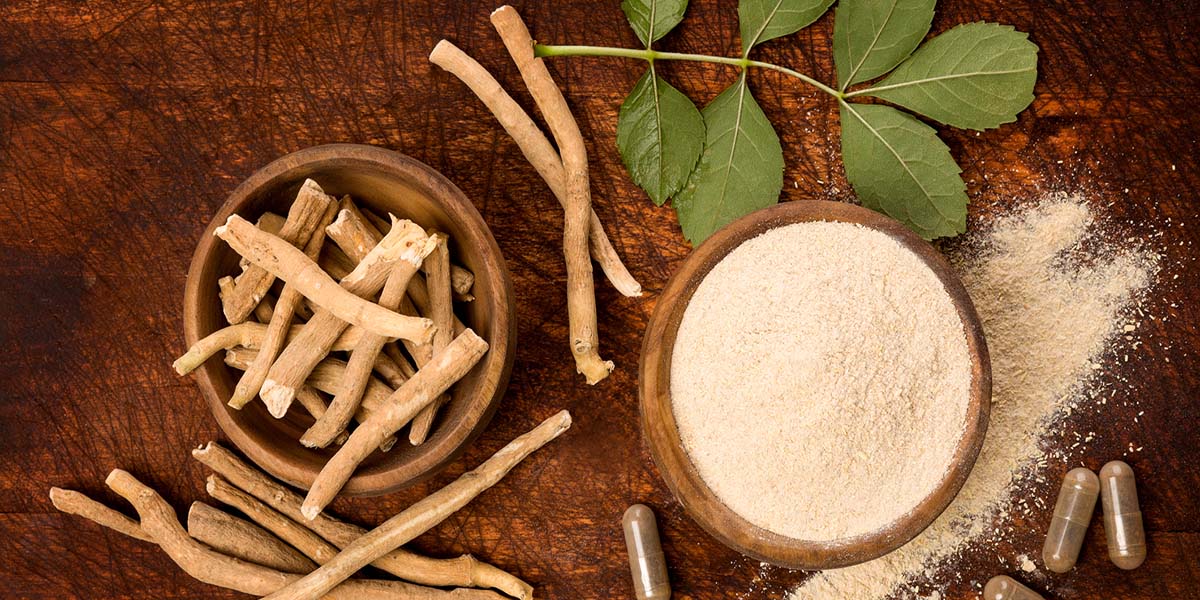WHAT IS ASHWAGANDHA?
Ashwa what, now? Sometimes called Indian ginseng or winter cherry, ashwagandha (pronounced, "ash-wa-gon-da") is an ancient medicinal herb that has been used for thousands of years in Ayurvedic, Indian, and African traditional medicine. Its name roughly means "smell of a horse", from the Sanskrit, "ashwa" meaning "horse" and "gandha" meaning “smell”. Although the smell may be a little more farmyard than farmstand, its name is also meant to convey the many strength-building properties of the herb.
HISTORICAL USE OF ASHWAGANDHA
Ashwagandha’s history can be traced back to around 6,000 BC, where it was first used in Ayurveda, the traditional system of ancient medicine practiced in India. There, it was considered to be a powerful herb that rejuvenated the system and contributed to a longer lifespan. Hindu saints recorded their knowledge of healing practices, including essential knowledge about plants and herbs, and frequently mentioned the benefits and uses of ashwagandha in their writings. In Africa, it was used among the tribes to treat fevers and inflammation. In Yemen, it is made into a paste for treating burns and wounds, and also as a sunscreen. In Siberia, the berries and seeds were used by Nanai hunters (natives of far eastern Siberia and Chinese Manchuria) as a tonic to reduce thirst, hunger, and exhaustion, and to improve night‐time vision.
Although ashwagandha has only somewhat recently been making headlines here in the western world, it has safely and effectively been used across the globe for thousands of years, in hundreds of ways.
HEALTH BENEFITS OF ASHWAGANDHA
As we’ve mentioned, ashwagandha is a powerful adaptogenic herb that can help your body in many ways. Here are the 3 biggest areas we need ashwagandha to help us out RIGHT NOW:
1. Stress, Anxiety, and Sleep
2. Memory and Cognitive Function
3. Immune Support
SCIENCE PROVES IT
Although they each work a little differently, the main role of apoptogenic herbs is to act in a gentle way to help our minds and bodies respond to stress. Many researchers believe this happens at a cellular level, citing studies that show their neuroprotective, anti-fatigue, and anti-depressive activities in clinical trials.
Research has shown that ashwagandha encourages the antioxidant activity that can protect nerve cells from free radicals. This is especially important for brain and memory function. One study looking at the effects of ashwagandha on memory showed that subjects who took 600mg/day of this root extract had significant improvements in memory recall, general memory, continuous attention span and information processing speed.
Studies have also demonstrated its effects on lowering blood sugar, as well. In one, a powder made from ashwagandha root was able to lower blood sugar a similar amount as an oral diabetes medication in patients with type 2 diabetes. Another study found that the effects were dose-dependent: with the larger dose of ashwagandha root providing a more significant reduction in blood sugar levels. Researchers think this is because of ashwagandha's impact on cortisol, which plays a role in regulating blood sugar.
Ashwagandha also contains potent phytochemicals that can help to calm the brain, reduce inflammation, lower blood pressure, and bolster the immune system. And we mentioned the scorpion stings. Is there anything this herb isn't good for?
How to Take Ashwagandha
Although the name ashwagandha doesn't exactly roll off the tongue, it is clear that this medicinal herb has been used for thousands of years to provide support for many health conditions. Due to its bitter taste and "horsey" smell, it is most often found in a capsule form. Sometimes it can be nicely worked into a blend, as well, as we've done in our Inspire for Women Protein shake. We've included ashwagandha and L-theanine to help balance stress and maintain focus, counting on our Flavor Pure™ blend of natural flavors and sweeteners to take the kick out of the horse.
As a small, easy step you can take to gain the MANY health benefits of ashwagandha, you can't go wrong with our Vegan Ashwagandha Extract:
- Standardized for quality and dosing to provide the benefits supported by clinical research.
- Gluten-free, dairy-free, soy-free, and Kosher.
- 100% plant-based, Certified Vegan.
- Free from horse-like smells or flavor profile.
And don't forget – you can save 15% off every order by using Subscribe & Save!















